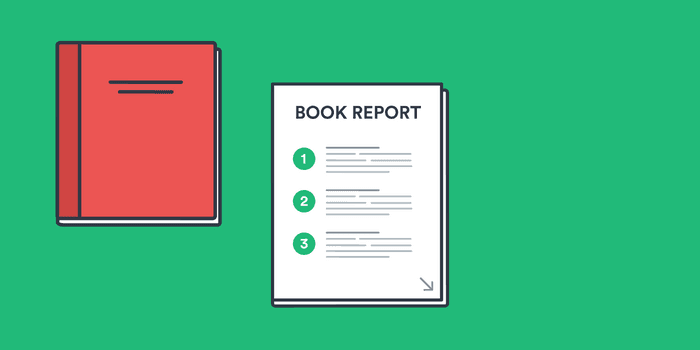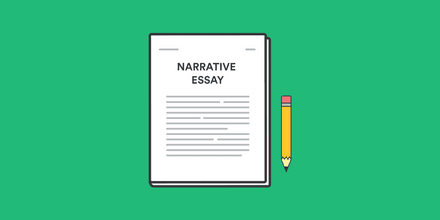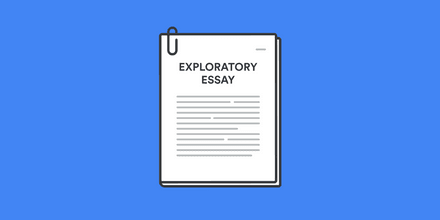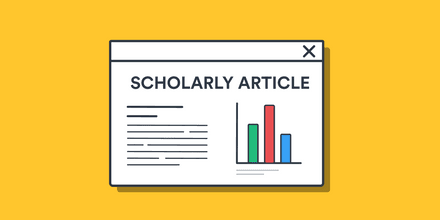
A book report is one of the first types of essays you probably learned to write in elementary school. But no matter how many book reports you turn in over the course of your student life, they can still inspire some anxiety and some confusion about the best way to write a book report, especially as you reach the high school and college level.
The good news is that the basics you learned in the early grades will serve you in good stead, since the book report format remains mostly the same. The very same structure and tools you used to dissect Charlotte’s Web and Superfudge will work just as well for Animal Farm and The Handmaid’s Tale. What changes is the depth and breadth of your analysis as a high school and college student.
So, If you are wondering how to start a book report for a college class assignment, here are some of the key pieces of information you need to know.
What is a book report?
Let’s start off with some definitions. In the most general terms, a book report is a summary of a written text, often a fiction novel, but can also include other genres such as memoir and creative non-fiction. It includes an analysis of the different elements and authorial choices that comprise the work, such as tone, theme, perspective, diction, dialogue, etc.
While the analysis should be reasoned and objective, it should also include your opinion and assessment of the impact and overall success of the author’s choices on the final work.
Book reports usually fall into one of the following types:
Plot summary
This type of book report isn’t just a re-telling of the story, it’s a comment on your overall impression of the plot — whether you thought it was engaging or maudlin or vapid, for example — backed up by direct quotes from the text to support your opinion.
Example of a plot summary thesis statement: The plot of Herman Melville’s short story, “Bartleby the Scrivener,” offers a poignant portrait of how depression robs a person of all motivation and momentum in life.
Character analysis
A character analysis zeroes in on a particular character (their characterization and actions) and their impact on the unfolding of the plot and its eventual outcome.
Example of a character analysis thesis statement: In J.D. Salinger’s novel, The Catcher in the Rye, the character of Phoebe, Holden’s bright and precocious younger sister, is a catalyst for rekindling his hope in humanity and reconsidering the choices he’s made in his life.
Theme analysis
A theme analysis looks at the overarching concepts, or themes, that run through a book and that give the text meaning and direction. Themes tend to be broad in nature, such as love, the importance of family, the impact of childhood, etc.
Example of a theme analysis thesis statement: Banana Yoshimoto’s novella, Kitchen, explores the theme of death and how everyone sooner or later has to come to terms with the mortality of the people they love as well as their own.
How to start a book report
The very first step in writing a stellar book report that earns a top grade is actually reading the book. This may seem obvious, but many students make the assignment much harder on themselves by not putting in the time up front to do a thorough and complete reading of the book they’re going to be writing their report on. So resist the urge to skim the text or to rely on the Cliff’s notes version. A nuanced analysis requires a deep grasp of the text, and there is no substitute for focused, firsthand reading.
It’s a lot easier to stick with a book that you enjoy reading! If you have the chance to choose the book you’ll be writing a report on, take some time to select a book that appeals to you, considering the genre, time period, writing style, and plot.
It can be helpful to start thinking about your book report while you are still making your way through your initial reading of the text. Mark down passages that provide key turning points in the action, descriptive passages that establish time and place, and any other passages that stand out to you in terms of their word choice and use of language. This makes it much easier to go back later and start collecting the evidence you’ll need to support your argument and analysis.
Once you finish reading the book from cover to cover, you’ll likely find that your mind is swirling with thoughts, impressions, and burgeoning analyses. At this stage, trying to distill all of these half-formed thoughts into one cohesive report may seem like a daunting task. One way to make this task more approachable is to start by collecting and listing the objective facts about the book. The following list covers the basic elements that should be included in every book report you write, no matter what topic or specific type of book report you’re writing:
- The book’s title and author
- The historical context of the book (when it was written)
- The time(s) during which the story is set
- The location(s) where the story takes place
- A summary of the main characters and action of the story
- Quotes from the book that will function as evidence to support your analysis
How to write a book report
With all of the basics in hand, you can start to write your book report in earnest. Just like most other essay types, a well-written book report follows a basic structure that makes it easy for your reader to follow your thoughts and make sense of your argument.
A typical book report will open with an introduction that briefly summarizes the book and culminates with a thesis statement that advances an opinion or viewpoint about it. This is followed by body paragraphs that provide detailed points to flesh out and support that opinion in greater detail, including direct quotes from the text as supporting evidence. The report finishes with a conclusion that summarizes the main points and leaves the reader with an understanding of the book, its aims, and whether or not you feel the book (and its author) was successful in doing what it set out to do. Ideally, the conclusion will also make a statement about how the book fits into the larger literary world.
A book report template you can use for any book report
If you find yourself stuck on how to start a book report, here’s a handy book report template you can use to get things off the ground. Simply use this structure and start filling it in with the specifics of the book you are writing your report on. Feel free to expand upon this book report template, adding more sections as appropriate.
Introduction
Write three to five sentences introducing the book and author as well as important contextual information about the book, such as the publication year and the overall critical reception at the time. Finish the paragraph with your thesis statement.
Body paragraphs
Include at least three body paragraphs that offer detailed information and analysis to support your thesis statement. Each paragraph should contain one idea, backed up with direct quotes from the text alongside your critical analysis.
Conclusion
Write three to five sentences that restate your thesis and summarize the evidence you’ve presented in support of it. Relate your findings to a larger context about the book’s place within both the literary world and the world at large.
Frequently Asked Questions about book reports
🐮 What is the format of a book report?
A book report follows the format of most papers you write - it will have an introduction, a body and a conclusion. Depending on the type of book report, you will fill these parts with the required information.
🍉 What are the parts of a book report?
These are the basic parts that should be included in every book report you write, no matter what topic or specific type of book report you’re writing:
- The book’s title and author
- The historical context of the book and time(s) during which the story is set
- The location(s) where the story takes place
- A summary of the main characters and action of the story
- Quotes from the book that will function as evidence to support your analysis
🥝 Is a book report a summary?
The book report is, among other things, also a summary of the plot, main characters, and ideas and arguments of the author. Your book report should help readers decide whether they want to read the book or not.
👍 How many pages should a book report be?
How many pages a book report should have depends on your assignment. It can be a half page, but it can also have many pages. Make sure to carefully read through your assignment and ask your professor if you are unsure .
🧭 What makes a good book report?
A book report is a summary of a written text. A good book report includes an analysis of the different elements and authorial choices that comprise the work, such as tone, theme, perspective, diction, dialogue, etc. A good book report helps the reader decide whether they want to read the book or not.


